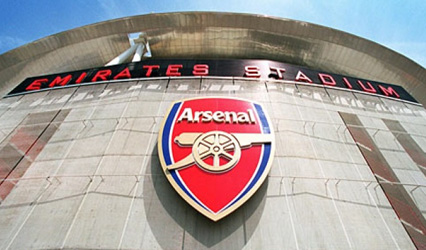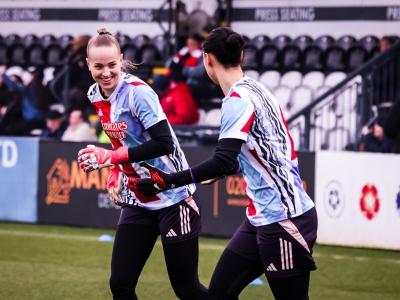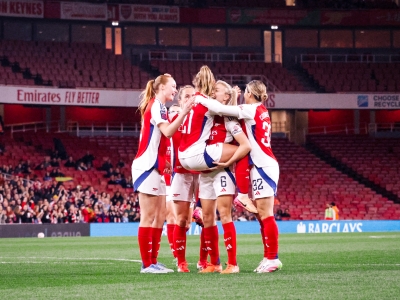I write while still giddy after our becoming the first English team to win in the San Siro against AC Milan. Now say it again. Gets better every time, doesn’t it? But amid the exultation and general press hype of our being able to win the League, Champions League, Boat Race, Grand National and US Democratic Party nomination, there is a bigger point which our revered pressmen are singularly failing to make - that English teams can combine athleticism with technical ability and achieve success.
Too many of our clubs have decided to take the easy route – Route One. Bolton, Birmingham, Wigan, Sheff Utd, Everton, Watford – these are all current or recent examples of top level English clubs whose sole (or at least main) focus has been on the promotion of physical prowess over footballing technique. Even Liverpool and Chelsea, whilst not being completely in this undistinguished camp, are regular proponents of the up and at ’em/long ball (as opposed to long pass) school of thought.
The managers of most of the above choose to focus on the physical aspects as it is far more difficult to do what Wenger and (much as it pains us all to accept) Ferguson have done – build multiple teams constructed on the basis marrying the twin tenets of power and top quality technical football.
Most clubs suffer from the terrible blight of poverty. But this blight is not financially based. Given the magnitude of the TV and sponsorship contracts, that would be a hell of an argument to prove. No the majority of clubs and their managers suffer from poverty of ambition. In fact I would go further. This insidious affliction has infected much of the footballing body politic in England. The vast majority of clubs don’t attempt to aspire to playing beautiful football. However, time and again we see English clubs and certainly the national team humbled in competition at the highest level. Rather than question why this is, it is far easier to put squads together containing the kind of journeyman professionals we see at the clubs mentioned above. The training these clubs undertake is seemingly geared to honing athletes who can run around tirelessly for 90 minutes. At the highest level, when you’re playing in international and European club tournaments this is just not enough.
At the same time, Sky tell us what a great game we have in England, so it must be true. The media will not criticise the majority of clubs and managers for their lack of ambition. Commercially, of course, they are right. Wenger and Ferguson can only give one opinion each. The papers have to fill up the rest of their pages somehow. They are forced to do so with current and past managerial non-entities who have neither the vision nor talent of the aforementioned. It is a sad day when one of the high priests of Charles Hughes-type long ball football, Neil Warnock, has a high profile column in a supposedly broadsheet paper (The Independent). Why should our clubs and managers change if everyone is telling them how great they are?
Wenger has shown, to the shame of the footballing establishment, that it’s not about nationality, it’s not about money. It’s not about having some magic wand. It’s about bloody hard work. It’s about taking the hard decisions such as whether to sell Vieira and Henry and even the likes of Bentley; whether to build a non-English team and accept all the brickbats from short-sighted , envious and largely talentless critics; about accepting that team building would need to be on a shoestring for a long period due to the financial constraints of the stadium move; about whether players have the right strength of character required to not just revert to hoofing the ball up the pitch when under pressure but to retain possession by playing their way out of trouble.
In business parlance, Wenger has built into the very fabric of our club the concept of sustainable competitive advantage. We have the best facilities, the best coaches and medical staff. We recruit the best kids and train them to perform in the best way, both on and off the pitch. We have been enjoying are the fruits of his policy for more than ten years now. All the signs are that the best is yet to come, as the youth setup begins to produce English kids who have the technical ability, athleticism and mental resilience to cope with competing with the best in the world, as opposed to being content with being the best in the local gene pool.
The sooner the football establishment in this country accepts that it is at fault, not this foreign interloper, the sooner it can start to put its house in order. And then England can start producing in numbers players who can vie for the highest footballing accolades.
Of course, what I am suggesting would go some way to closing the gap between Arsenal Football Club and most of the rest. But then Arsene will already have worked this out and will no doubt have a plan.
After all, Arsene Knows.







